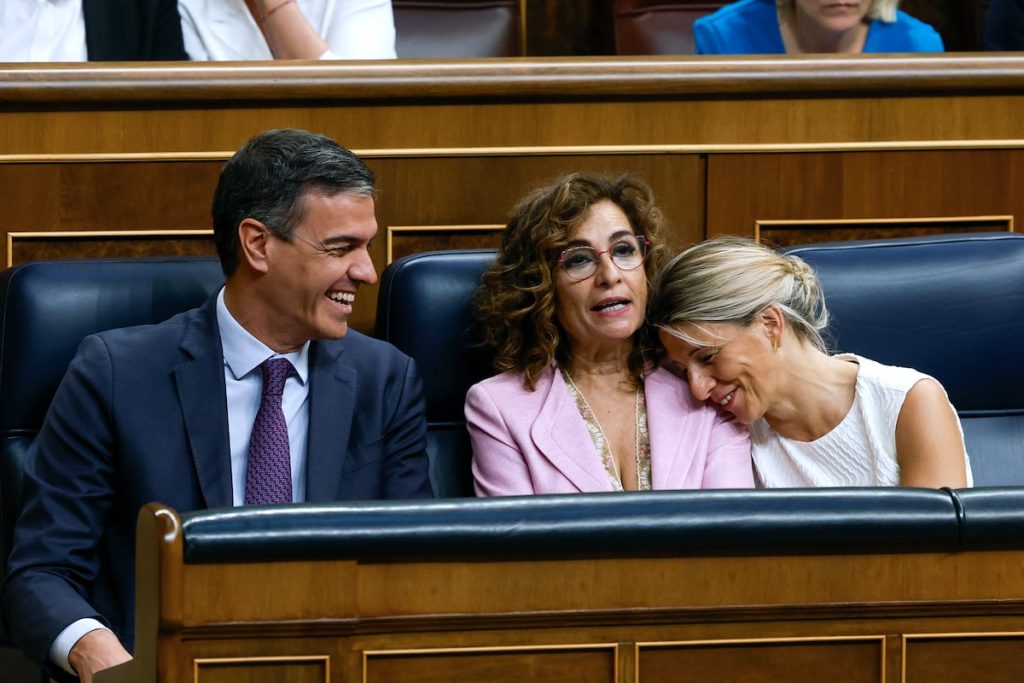The gurus and demographic experts of the political parties continue to compare, with all kinds of data and evidence, that there is currently no electoral tension in Spain ahead of the European elections on June 9th. There is political fatigue. Only 4.8% of those surveyed in the latest pre-electoral poll by CIS consider these elections as the most important, and the majority (almost 64%) acknowledge that they will vote based on national politics, explaining the escalation of tension between the main leaders and the prevailing messages. It will be another showdown between Pedro Sánchez and Alberto Núñez Feijóo, which the PP sees as a revenge for what happened in the general elections on June 23rd. The PP is now content with winning, even if by a small margin, as they confirm that the PSOE is maintaining itself by capturing a lot of progressive votes from Sumar.
The electoral scenario seems to be repeating itself, fostering optimism for the President and leader of the PSOE, Pedro Sánchez, who insists in his rallies that his party will win the elections again, while the PP under Feijóo remains cautious and lowers expectations. The campaign progresses, the moment to open the ballot boxes approaches, and patterns from recent elections are reproduced: the narrative and messages are once again concentrated by the government and its president, for better or for worse, both domestically and internationally. The PP continues to struggle with strategic shifts, silences, and the sticky feeling that they don’t know how to deal with Vox.
Among the socialist members of the Government and the PSOE headquarters, it is being transmitted that nerves have returned to the PP, as their data does not confirm the overwhelming victory that was predicted a few weeks ago. They indicate that the Pedro Sánchez and Teresa Ribera duo are holding their ground at a crucial moment in the legislature. The European elections, with a single constituency, usually serve as a thermometer for voters to punish governments with the perception that it will affect them less in reforms or specific initiatives. The Sánchez government is currently going through one of the most delicate and noisy moments of this legislative term, with challenges like the amnesty law and the Catalan nationalist partners waiting for a PSC government to be formalized in Catalonia.
In Feijóo’s PP, however, there is no widespread enthusiasm. Arguments are based more on reason than grand illusions. “The important thing is to win, even if it’s by one. Where were we? The PSOE has 21 MEPs now and we have 13. The polls say we’re winning, that we’re going up to 20 seats, that the PSOE will fall below. And that’s been the trend in all elections since Feijóo came,” explains a member of the PP’s management committee. The perception of the latest pre-electoral poll results from the Center for Sociological Research (CIS) confirms that framework, showing how Sumar’s vote has decreased by 41% in just 10 months. The PP would concentrate between 30% and 33% of the vote, with Vox still present and some shifts towards the conservatives and other parties.
This depiction from within the surveys significantly influences the emphasis that parties and candidates put on their actions in the final stretch of the campaign, with the revival of the amnesty as the central issue of PP and Vox’s criticisms, combined with an exaltation of a widespread corruption climate in the country, a tension strategy that has worked for the conservatives in the past. As a result, European proposals are diluted in this mix. The socialist leader and his candidate try to mainly talk about the threat of the far-right and its cuts not only in Spain but throughout Europe, although headlines mainly focus on “mud” and “Vox”. Feijóo hints at having a whole agenda of European proposals, but in essence, it boils down to the EU being the best place in the world to live and develop, as long as its institutions remain strong. He also criticizes the national politics being consumed by amnesties and corruption, and calls on Europe to activate the rule of law in Spain.


